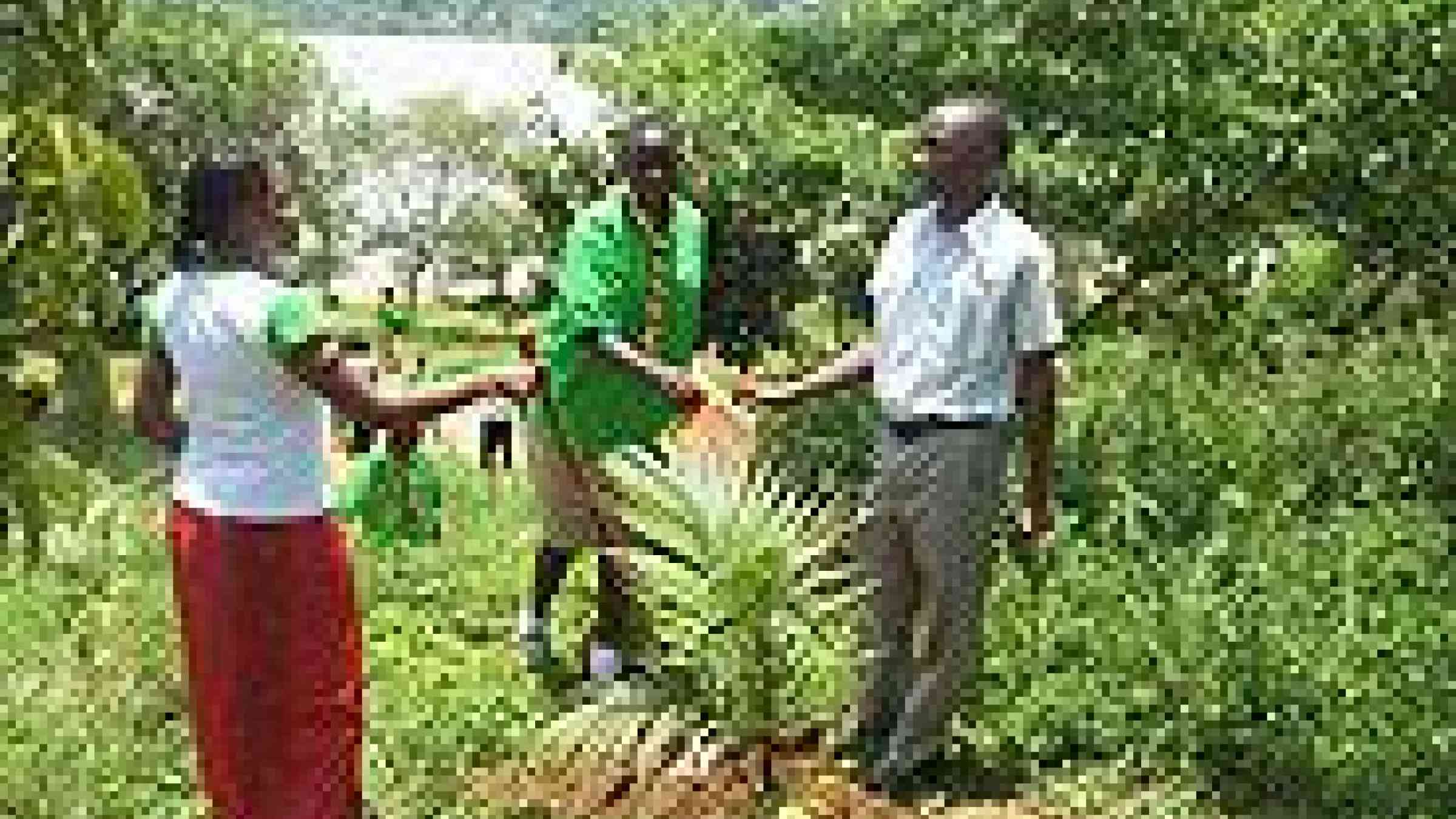
The Red Cross has responded to a call from the Ugandan Ministry of Disaster Preparedness to provide 50,000 tree seedlings, which will help reforest parts of the Mount Elgon region.
The tree-planting project is part of a new Uganda Red Cross programme, launched in September 2012, to reduce the impact of disasters in the Elgon region. The majority of families depend on the land for their survival, putting pressure on natural resources. Environmental degradation in this region is one of the factors causing more frequent floods and landslides over the last few years.
Karen Peachey, British Red Cross representative in east Africa, said: “Such disasters are only going to become a greater threat due to a rapidly growing population, continuing environmental degradation and climate change, which is predicted to increase both the dry spells and intense rains. The programme, which is supported by the British Red Cross, will help communities be better prepared, saving both lives and livelihoods.”
Reducing the risk of disaster
The Uganda Red Cross is helping 30 communities in the districts of Bududa, Bulambuli, Manafwa and Bukedea.
William Kimanai, a 34-year old community volunteer in Wanga village, Bulambuli district, said: “We’ve been given a number of tree species including mangoes, guavas, oranges and eucalyptus. The trees conserve moisture and that is why we plant them along the river banks. We encourage every household member to plant at least three trees.”
Wanga village is just one of many communities in low-lying areas of Bulambuli district, which has already benefitted from training by the Uganda Red Cross. As well as planting trees they have started digging trenches to divert water to rivers as a means of guarding themselves against floods.
Red Cross support
Ken Kiggundu, Uganda Red Cross director of disaster management, said: “We are determined that people living in these high-risk areas should have every opportunity to live their lives to the fullest.
“A disaster is not one until it destroys and disrupts the living patterns of communities. Normally what we call a disaster begins as a hazard. Given the right knowledge and skills people can ensure potential disasters cause minimal disruption and loss to their com¬munity.”
The Uganda Red Cross is working with the communities at risk, local government authorities and other local organisations, to find ways of strengthening the communities’ ability to prepare for and respond to disasters. The British Red Cross is providing technical support for the programme, along with £2.6 million funding from the UK’s Department for International Development over a three-year period.
Samson Mat¬sambwa, assistant chief administrative officer of Bududa district, said: “The Red Cross is our first and best partner; they are the first to respond to disasters and the last to leave.”